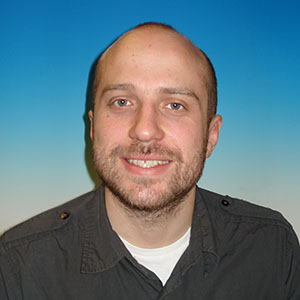Biography
I've been fascinated in the brain, learning and computation since a young age. I remember being taken in by illusions created by artists, such as Escher, the chessboard illusion and the McGurk effect. Around the same time, I managed to get my hands on my Dad's Commadore 64 and became hooked on programming and computers. Since then I’ve been rather fortunate (most days!) to conduct research in both of these fields where I currently investigate some of the many mechanisms of plasticity and navigational systems. This knowledge can be used to shed more light on the brain as well as solve real-world problems.
I graduated from Keele University with 1st class honours in Computer Science and Management Science in 2007. My PhD investigated the use of Artificial Neural Networks when applied to highly non-linear time-series datasets where it was shown that improved performance can be obtained using a novel reservoir with random static projections (R2SP).
After completing my PhD, I was eager to pursue my interest in understanding how the brain works and undertook a post doctorate in Neuroscience investigating astrocytes and plasticity in the barrel cortex in 2012. I then moved into imaging of populations of neurons with novel voltage-sensitive dyes in-vitro using the stomatogastric ganglion (STG) of the brown crab (Cancer pagurus) as the model system. Most recently I have become involved in a project investigating the effects of caffeine on learning. As a fan of tea and coffee, this of particular interest to me!
Here are my LinkedIn and Orcid profiles for those interested.
Research and scholarship
My interests lie in two fields which overlap greatly. First, the brain and its underlying mechanisms. To satisfy this interest I'm currently a post doc at Keele in Neuroscience where I study plasticity in the hippocampus. I also am part of a project investigating the use of novel voltage-sensitive dyes in-vitro using the crab stomatogastric ganglion as the model system. Additionally, I investigate plasticity models in the brain: an area of great interest in discovering how the brain works and adapts to our dynamic world. This work has investigated the effect of astrocytes on plasticity, a largely understudied area in Neuroscience until recently, and showed that they are integral in homeostatic plasticity mechanisms.
Secondly, the field of Computational Intelligence, particularly anything to do with Neural Networks and the areas of Reservoir Computing and Echo State Networks. A good introduction on Echo State Networks can be found on Scholarpedia. A free Matlab and Python toolkit, along with many publications using Reservoir Computing can be found on the Reservoir Lab website which is based at Ghent University, Belgium: http://reslab.elis.ugent.be/.
My other research interests lie in biologically plausible approaches at replicating how the brain functions (an intersection of my two interests), such as spiking neural networks and the fascinating field of Computational Neuroscience. I am involved in research with colleagues in Computing that has used biologically inspired models for robot navigation. Other areas of research include speech recognition, signal processing (e.g. stem cell classification and the forensic sciences) and generally finding out as much as I can on how the human brain works.
To further my knowledge in Computational Neuroscience, I have attended several excellent summer schools including the course at the University of Ottawa, Canada (for more info see http://www.neurodynamic.uottawa.ca/summer.htm), CRCNS summer school (https://crcns.org/course/), CoSMo 2012 (http://www.compneurosci.com/CoSMo2012/) and the IBRO/UNESCO Interregional summer school on Computational Neuroscience in Hyderabad, India (IBRO summer school). While intensive, these courses were very interesting where several topics regarding neural models, analysis of neural data and stochastic resonance, among others, were covered. I would recommend these courses (as well as others) to anyone interested in this field.
Publications
School of Life Sciences,
Huxley Building,
Keele University,
Staffordshire,
ST5 5BG
Tel: +44 (0) 1782 734414
Enquiries:
Tel: +44 (0) 1782 734414
Email: lifesciences.office@keele.ac.uk


